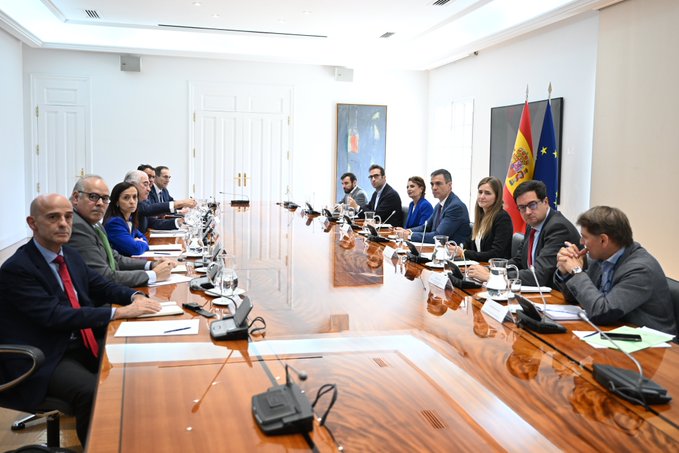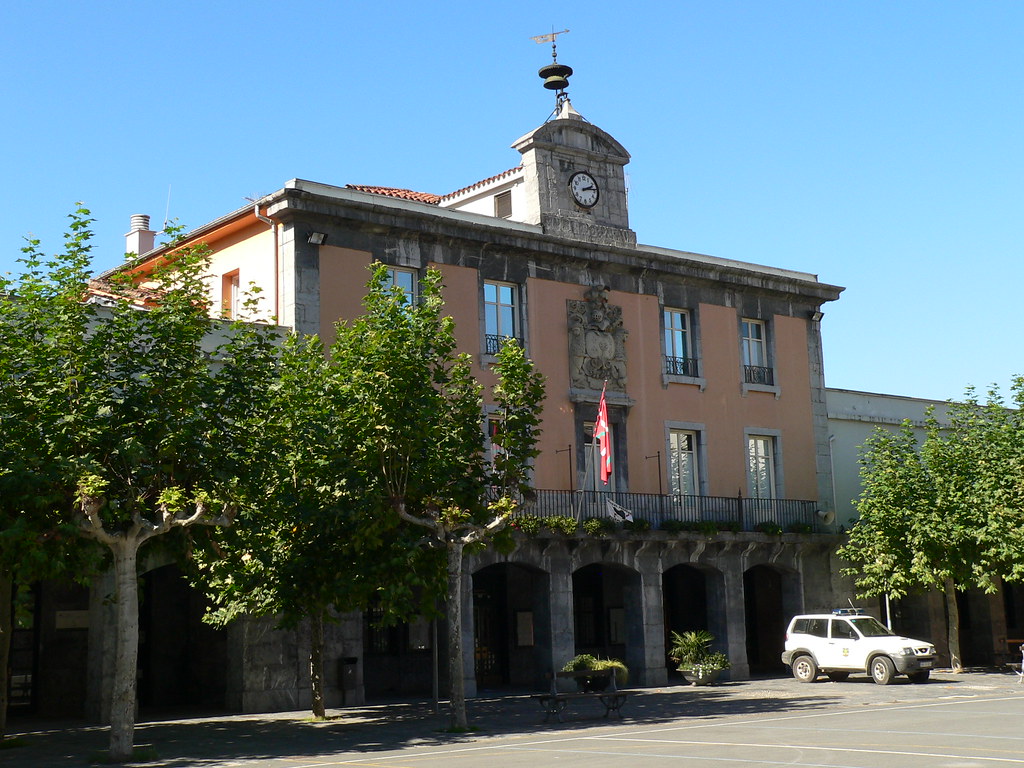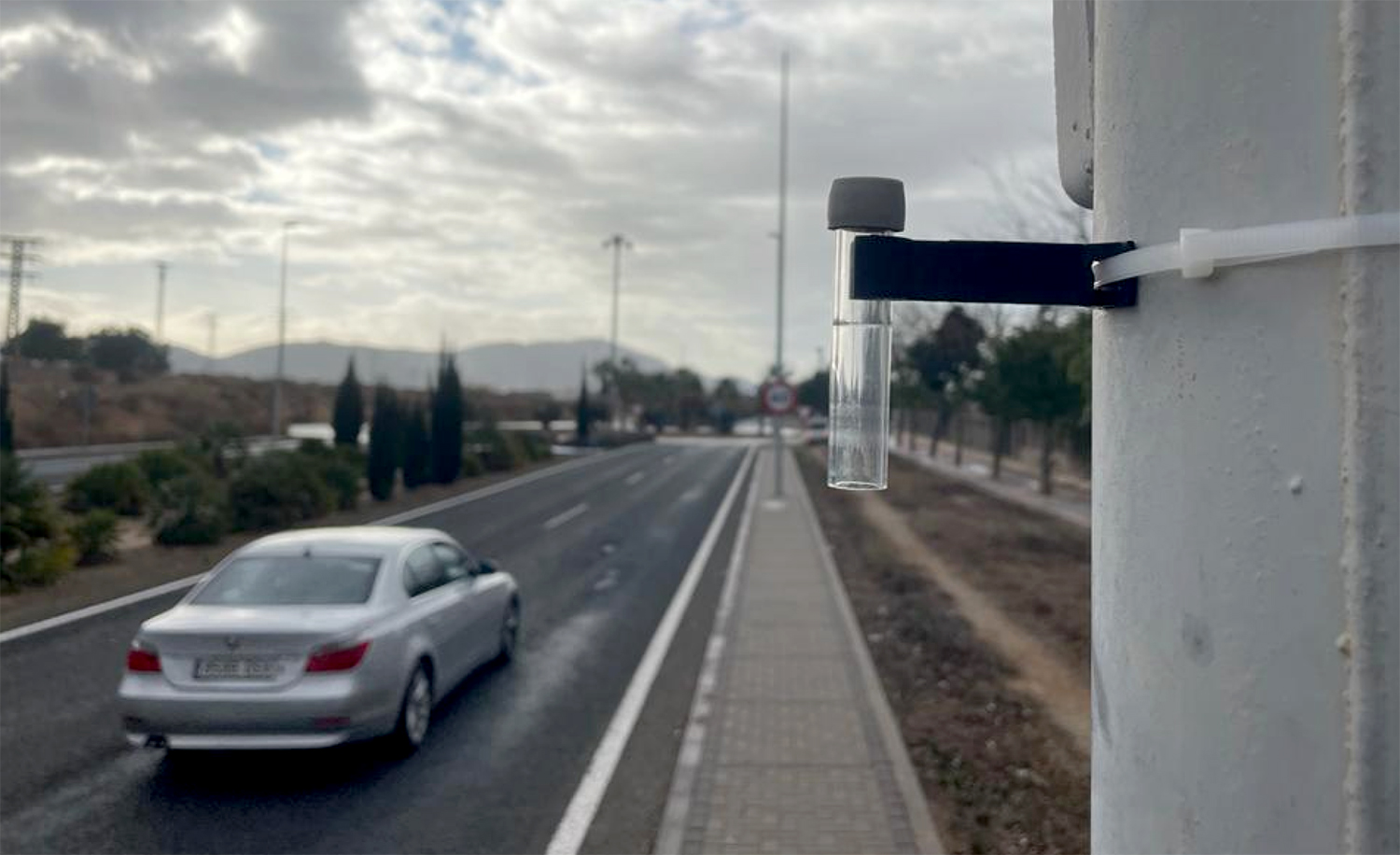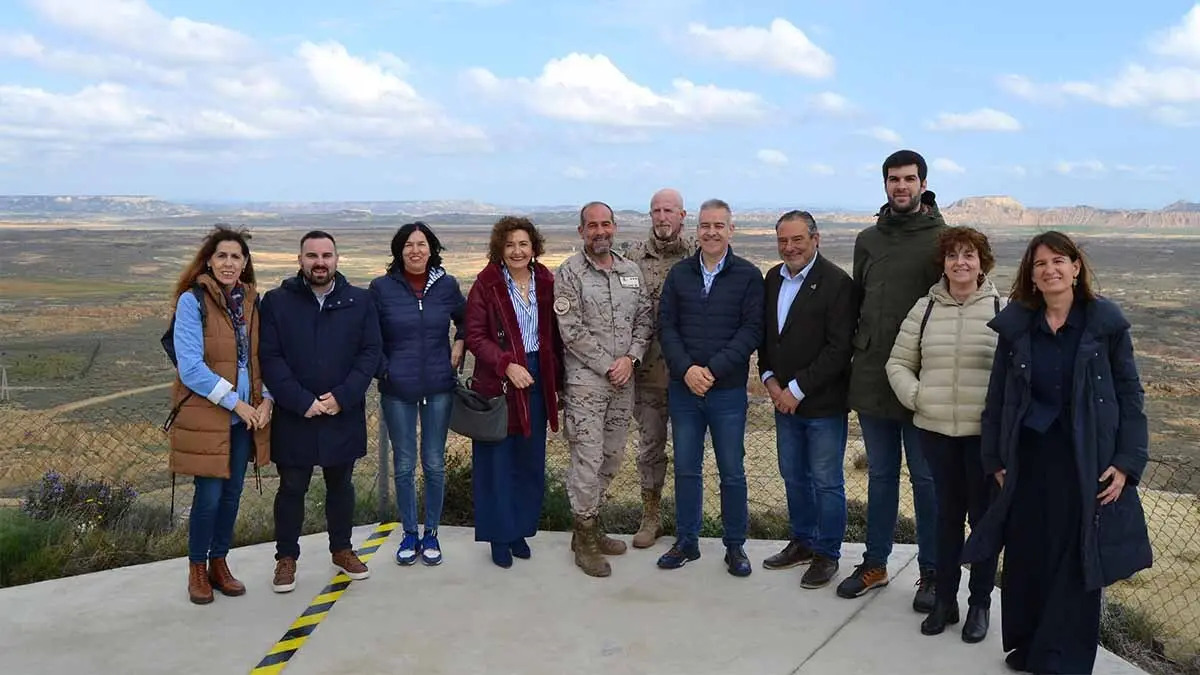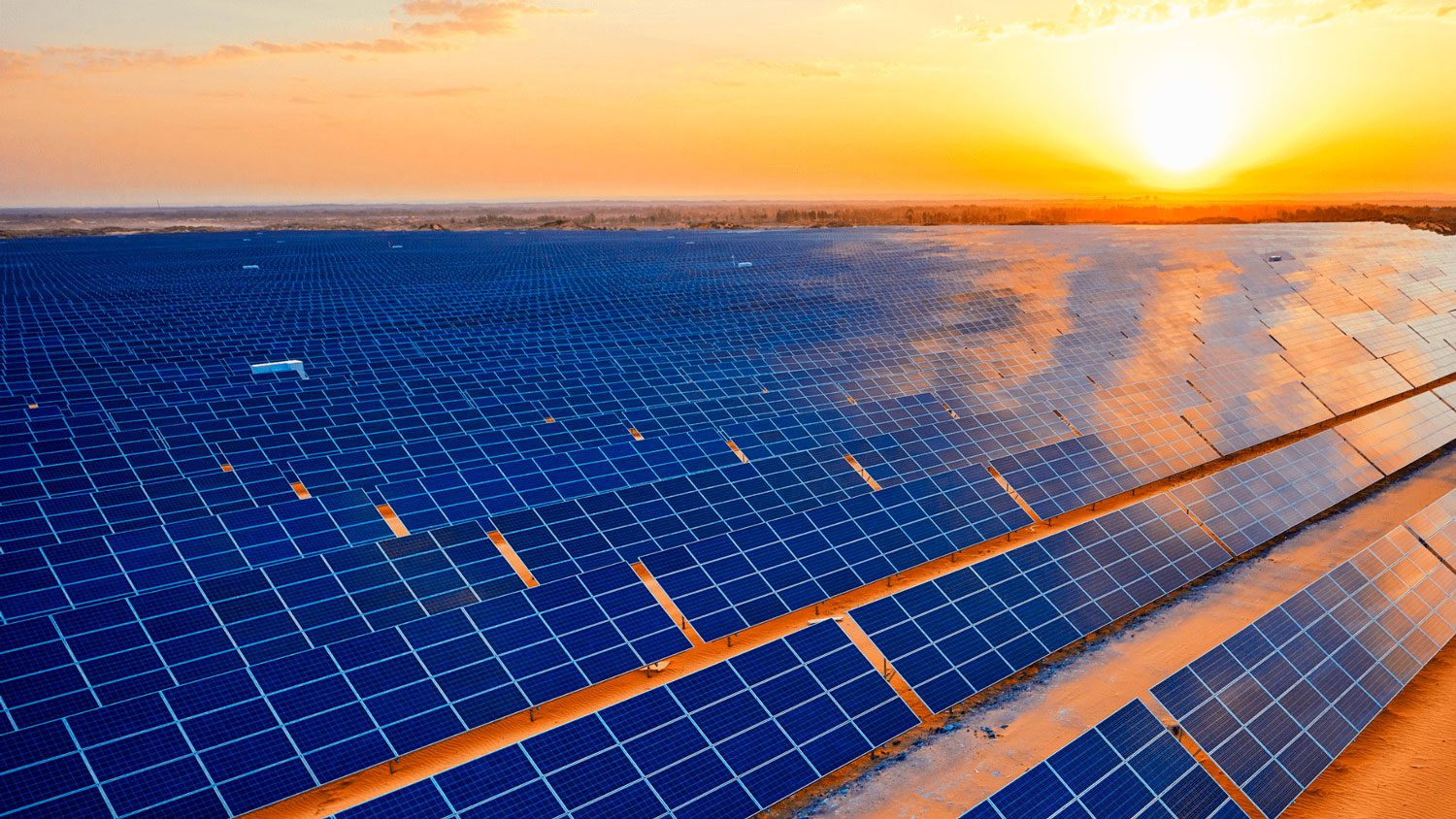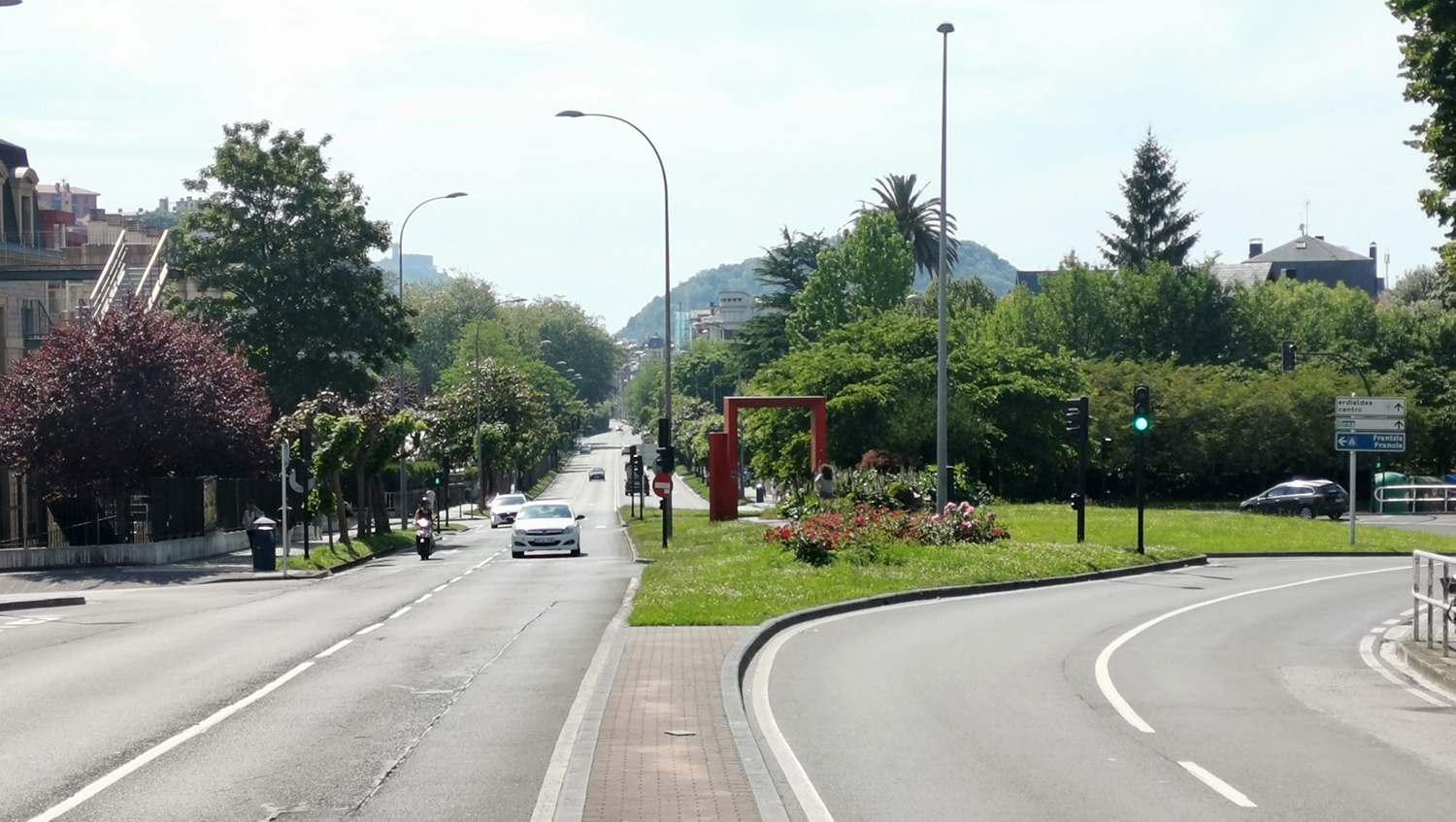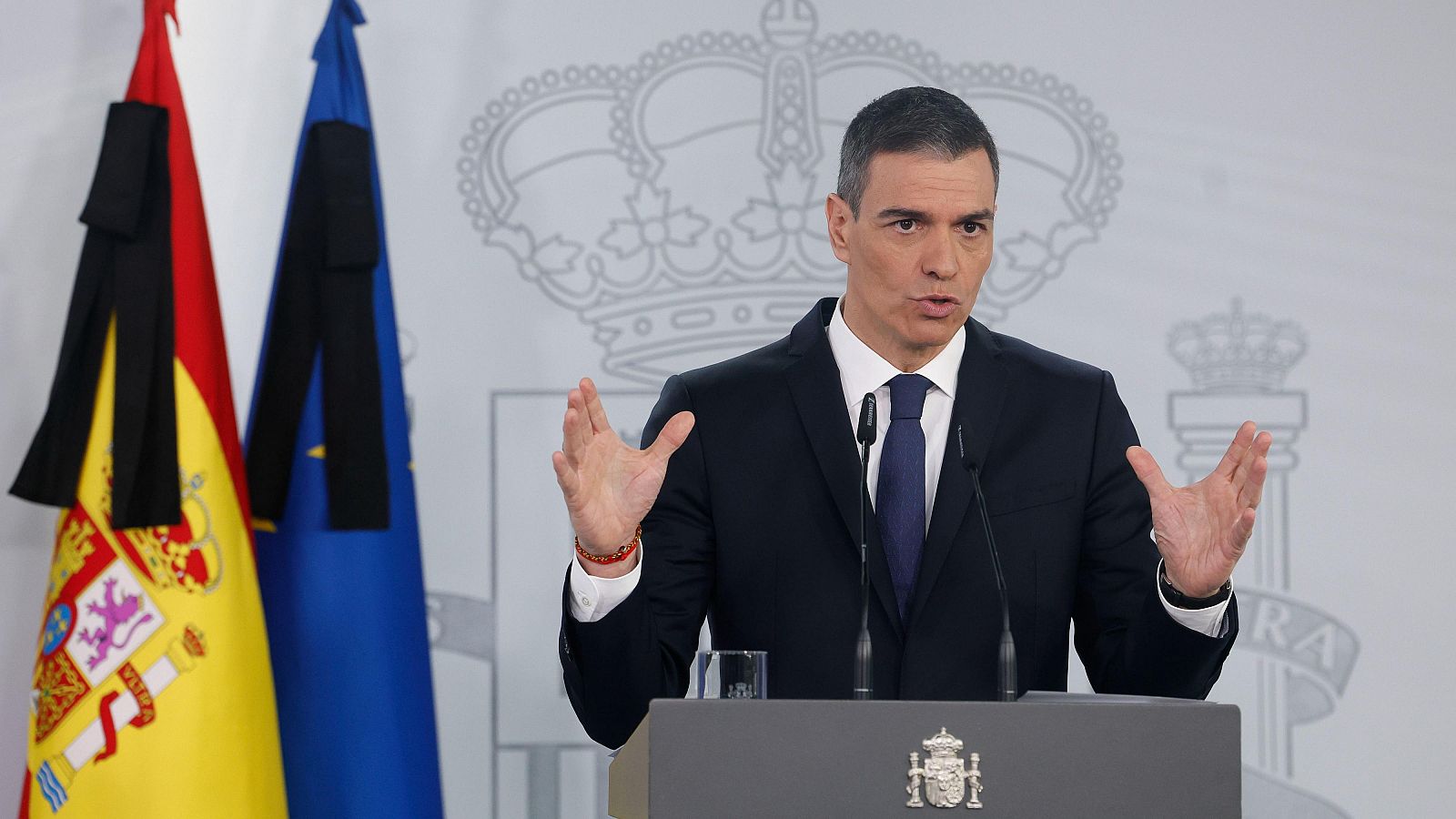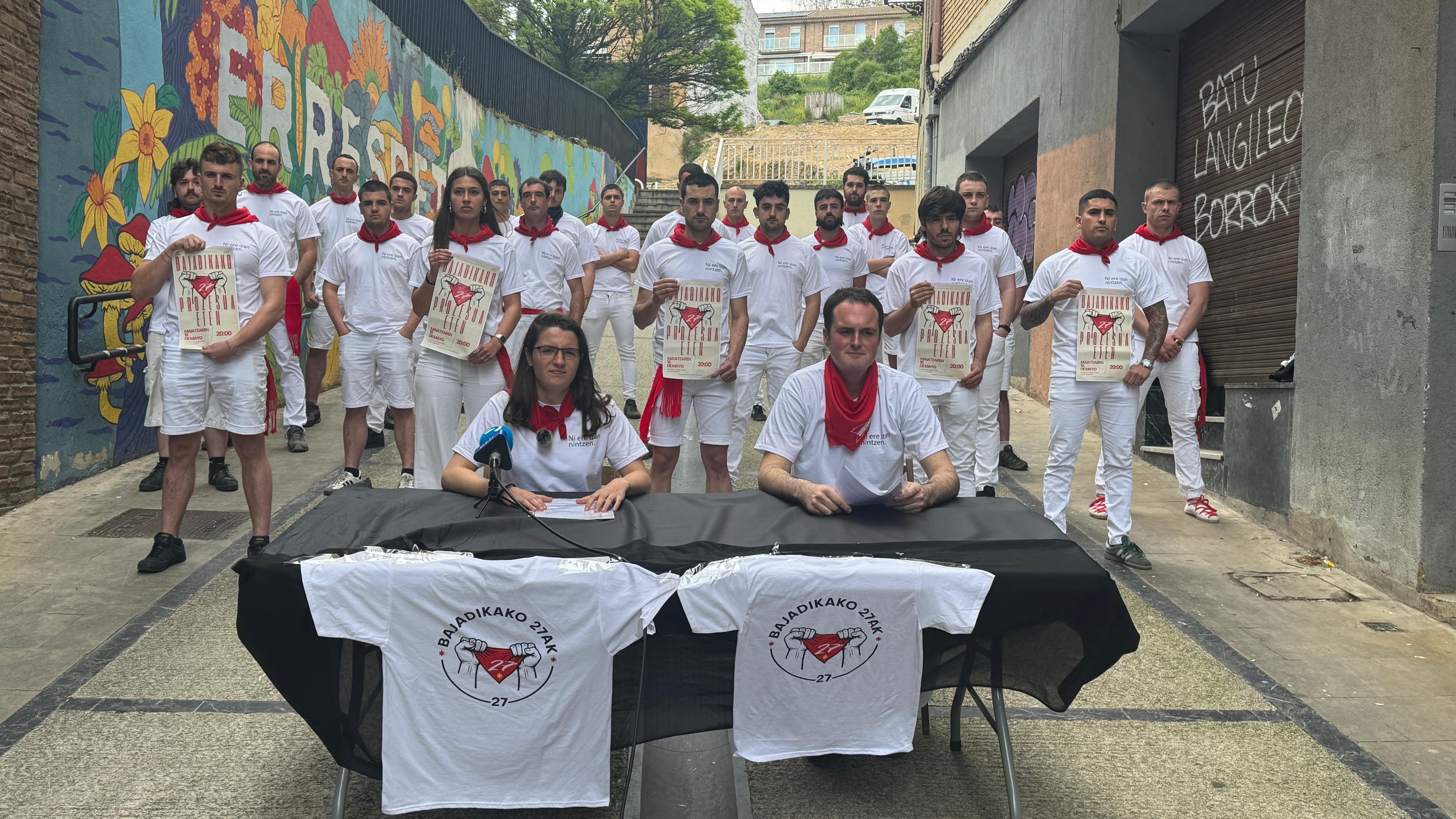“We are in the hands of companies and in politics there is no one to prevent it, that is even more serious”
- Euskal Herria Bizirik called on April 13 in Azpeitia a day of mobilization in defense of the land to show "a broad social rejection of the macroprojects that attack the territory and the rural environment". We have met with the conveners.

This Saturday morning several workshops and round tables will be held in Azpeitia on the subject and at 18:00 the demonstration. More than 70 agents from Euskal Herria have joined the call (in this news you can read the list of calls and the program).
We have talked about the Josebe Blanco theme, not at Oleta! Member of the group; Rebeka Gonzalez de Alaiza, member of the group Arabako Mendia Askatasuna; Enea Andueza Otxoa, member of AHT Gelditu Nafarroa and Itziar Pou, member of Sañu Bizirik.
Why in Azpeitia?
Rebeka Gonzalez de Alaiza: Because it was a turning point. Right after the Tapia Law, the Sañu de Azpeitia project, with Statkraft, happened, and the coup was very hard. We thought there was a political stream that was in tune with us, and all of a sudden we realized that it was up in the mega projects chariot. At that time the PNV took advantage of it, publishing in Correo a two-page article, announcing that they had been talking with Statkraft for a long time. The people of Azpeitia did not know, then tried to decorate saying that it is a “public-community project”, but for us it basically follows the same model as the others, and we also denounce it: a transnational company is the one looking at a place, those places are mountains or natural resources, the people do not know anything and when you know the discourse is oriented to what they had already decided, there is no possibility of making a new approach from the community.
In that article, the PNV sent a message to EH Bildu parliamentarians to link their base, and it placed us on that base, although we have always looked after autonomy, although among us there are members of that political trend. And I told them that they would need a lot of pedagogy to achieve their goal. The PNV does the same when several representatives of its municipalities are part of us, and when they oppose these mega-projects, for example in Maeztu, they immediately warn them of the party line.
Itziar Pou: Today, innovation is oriented to give a new impulse to capitalism, and as people always pay for that model, thinking about the logic of the city. In Azpeitia and Azkoitia the river Urola was destroyed after the industrial revolution and now also the mountains. Azpeitia is significant in this regard.
Josebe Blanco: Unfortunately, today, this day of mobilization could have taken place anywhere in the Basque Country. The Azpeitia project is not the only macro-project, and I refer to all macro-projects, not just electricity generation. But it is not a pity that a day of mobilization is in your village and in Sañu Bizirik there is strength to respond.
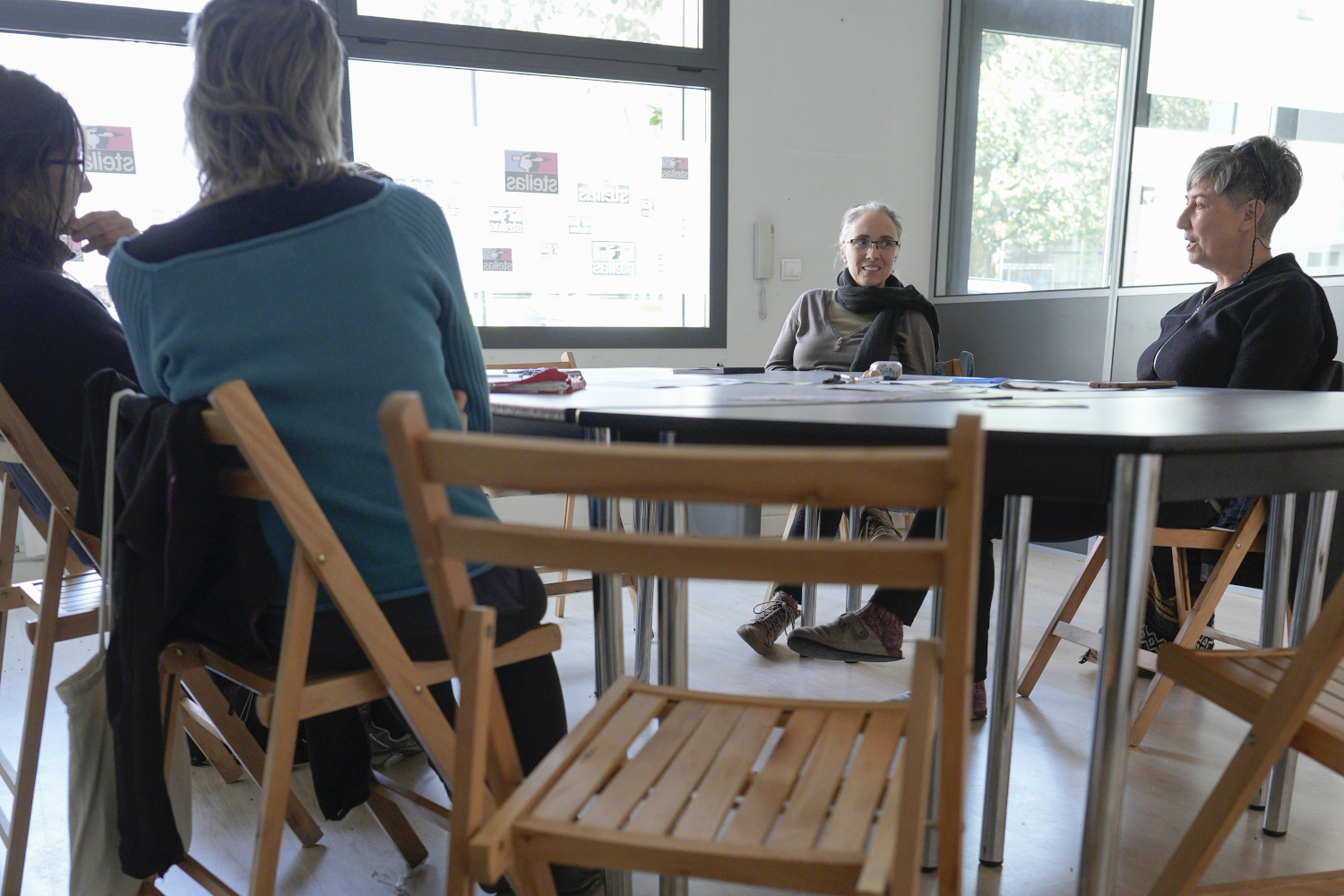
Throughout the morning you will conduct various workshops on agroecology, feminism, biodiversity and energy projects. What is their relationship with the defense of the Earth?
Pou I: These workshops suggest that, in the face of this model, alternatives are required.
R. Gonzalez de Alaiza: The crises we live in are part of the capitalist economic model, deepening and ever closer in time (as soon as we enter another). They try not to affect the social order they have established and the ideology that maintains that gradation. That is why they propose salvation: these mega-projects are the new messiah, we will live happily and we will have everything we have had so far. And we know that's false.
"Decentralizing the model is a risk for the ruling class, because it would open up the possibility of taking steps towards autonomy from the
current dependence" R. Gonzalez de Alaiza
Moreover, on the scale they propose, it is difficult for citizens to contrast. We cannot organize our energy transition into such a big, hierarchical model that only a transnational can do it with a lot of money and power. They therefore continue to have the power to decide on territory, on energy and on people. Why do they not want to leave this issue to the public? Because the decentralization of the model is a risk for the dominant class, because it would open the possibility of taking steps towards autonomy from the current dependence.
J. White: There is a general trend towards the infantilization of society. In this maturation process, decision and capabilities are somehow hijacked and we enter a forced delegation. This issue is directly related to these power relations: if we take into account that in rural areas we live in 11% of the population and that 89% of the territory is the one we live in, because relations of strength are clear.
R. Gonzalez de Alaiza: They don't want us in the rural core. It is large companies that want to take over the territory and want us to work for them. They want territory without people for no one to defend it. That is why our defense goes beyond “here no”, it is a general defense.
We want to put another face to this model, with these workshops to be worked on in Azpeitia: to give people autonomy. And above all, we want to start with the basic need: food. How are we not going to do an agroecology workshop, whose objective is to organize agricultural land by wind and photovoltaic power plants? We have to go just the other way: we have to feed ourselves, being sovereign, we have the land as a basis and we have to respect it.
"We have crossed the borders of the planet and there the industrial agricultural model has its weight"
J. Blanco
J. White: If you have to maintain life, you have to eat. That's basic. We cross the borders of the planet, where the industrial agricultural model has its weight. To those who love the numbers I would say a real balance of accounts: take the balance of accounts of a company dedicated to the exploitation of land or animals, but honestly, that is, taking into account all losses and damage to biodiversity and nature and monetizing them; and compare the balance of accounts of those who work in ecological farms. It is clear where the profitability lies, both in purely economic terms, in numbers, and in the contribution to community and society. The people who work in an intensive model are the ones who receive the most subsidies and are the ones who harm our community the most.
What about Basque feminism in defense of the Earth with the workshop? There are many of us who are part of the Earth’s defense groups. The view of women is also a very interesting contribution in this struggle, to avoid repetitive mechanisms of the system, based on hierarchical relationships of power.
R. Gonzalez de Alaiza: As Audre Lord said, we cannot emancipate ourselves from the tools of what takes us. And there, women have an important role, because the model is based on oppression: the oppression of nature, people and, above all, women.
J. White: The loss of biodiversity: causes and consequences is another workshop. Both the people who live in rural areas and those who live in urban areas, it is essential that the rural area, which represents 89% of the territory, be as orderly as possible, because the picture before us is really serious. The reports of the researchers make it clear that the lives of our descendants are in danger. These workshops can be the starting point for reflection, for reviewing and changing the way we are in the world. But this cannot remain just about the citizens. There is a general structure that binds us very strictly.
"We all join Palestine, but the Basque Country promotes its economy through the military spending of Spain, Israel and other states"
I. Pou
I. Pou: It is not only our land, it is also planet Earth, and our way of life also influences the enormous imbalances that exist worldwide: we all join Palestine, but our way of life influences it, the Basque Country promotes its current economy through the military expenditures of Spain, Israel and other states (Military Polygon of Bardenas, Senner, NOVA.
J. White: And above all, I would like to stress that what is going to be proposed in these workshops is not a utopia. It's a reality, that's happening. The houses that live in the agroecological model exist in reality, in that we are. It's possible.

The manifestation of Azpeitia focuses on the defense of the land. The mind is focused on large renewable energies, but there are other struggles associated with that day...
"These macro-energy facilities pose a need for us and at the same time remain committed to driving a model where more and more energy is needed. An example of this is the APR"
E. Andueza
Enea Andueza: The energy macro-installations present us with the needs of the territory and, at the same time, they remain committed to driving a model in which more and more energy is needed, accelerating, more and more destruction is needed and sovereignty and decision is lost. A very large example of this is the APR, which emerged at the time when we were told that unlimited economic growth was possible. Today that myth has fallen, but yet they want to keep the project, even though the arguments fall clearly. At AHT Gelditu Nafarroa we join the manifestation of Azpeitia, the philosophy -- we think it makes no sense to propose this kind of infrastructure and at the same time to say that they are necessary to meet the basic needs of the people. We're going to analyze what those needs are, we're going to analyze what kind of society we need, and depending on that we're going to pose it, but among all of us.
J. White: The mechanism and basis of any macro-project that is being proposed are the same system that has brought us to this disaster to repeat. Doing the same thing twice won't solve the problem. We know where this macro-project dynamic has brought us. Should we continue to stumble on the same stone? It is clear that we must change the root.
I just heard a philosopher say that ours is an imperial life. The existence of the emperor requires the existence of other figures that allow him to keep him in the empire. That is what we have to fly.
"If you see themes separately, in that bias we are much more manipulable"
E. Andueza
E. Andueza: Often the issues raise us as if they were not interrelated. It's very important to have a full view, because that will give us the keys to thinking about where to go. If you look at issues separately, in that bias, we are much more manipulable. That is why it is enriching that in EH Bizi there are such diverse groups. In addition, all this imposition is materialising in a fairly similar way everywhere and with projects of different kinds, the strategies they use are quite similar, so it is effective to help each other out of it: lack of information, lies...

You have made the Azpeitia call at the door of the elections. The adoption of the Basque Country’s Energy Transition and Climate Change Act (voted against by EAJ-PNV, EH Bildu and PSE-EE) and the adoption of the Sectoral Territorial Plan for Renewable Energy is in the process of adoption. Do you see the position of all parties that passed the same law on this issue or are there nuances?
R. Gonzalez de Alaiza: Nuances that EH Bildu and the PNV hugged each other. This would not be possible at another time. And what does that mean? They have agreed on the model they're going to bring together.
J. White: There are differences in language and speech, but in the background I do not see great differences. They support macro-projects, they say that small, medium and large power generators are needed. Some people talk about socialization because you have to give it a little bit of color, but I don't see any big differences at all. And I am very concerned about the Sectoral Territorial Plan, because in some sections it refers to the security that investors need. In other words, investors should know that they will have some protection in the designated areas. You start looking at the map, and it's terrible what the fields are promised to these investors.
Pou I: We live in a theoretical democracy and start changing the law to facilitate the implementation of these projects. And do we still believe in an election vote? What for? With that vote and then do what you want? Is that democracy? It has less and less value. Statkraft, along with the Mayor of Azpeitia, organized a popular assembly in Azpeitia to, in his words, inform the people or take their requests into account... and immediately urged the Government to take a quick road not to carry out environmental impact measurements on the excuse of the Ukrainian war.
"The authorities do not want the PTS to be produced by Basque Government technicians, because the technicians maintain the legality. They've taken that work out to a company with wind interests."
R. González de Alaiza: The Territorial Sectoral Plan has been elaborated by the company Saitec, interested in the construction of a marine wind plant in Armintza in the wind market of the wind turbines. In this lack of democracy, the authorities do not want the Sectoral Territorial Plan to be drawn up by technicians from the Basque Government, who maintain the laws, the laws of Spatial Planning and the Environment that have been worked for a long time. It's very significant. They've taken this work out to a company with wind interests. This means that organizations are losing content and the laws we have developed, which are changing at full speed. We are in the hands of those companies, and that is very serious. And in politics, there's no one to stop it, and that's even more serious.

We need energy to live and both global warming and the energy crisis demonstrate that the current consumption of fossil fuels is unsustainable. Can the solution be that of macrorenovables? Specifically, on the subject of energy, what is the alternative?
“These projects are to solve this problem. And what's the problem? We want to continue living in this imperial model"
J. Blanco
J. White: “To solve this problem.” And what is the “problem”? The problem is that we want to continue living in this model, in the imperial model we have mentioned before. We want to remain emperors and it is not possible. The next step is to see what are the privileged, who are going to be able to remain emperors, and everyone else will be able to keep having emperors.
“Euskal Herria is and will remain an industrial people,” they say. If we take the historical route, how many years has Euskal Herria been industrial? A nonsense. And with this, I don't claim to go back to life 200 years ago. We have other sages, we have other tools, but of course we have to stop being emperors. Either we get off the donkey and we start to step on the ground and get back to our measure, or we'll touch the wall, yes or no, before it's too late.
Specifically on the issue of energy, the Earth has no raw materials to replace all the energy we consume with electrification. It doesn't exist. It is not possible. It's marked by the biophysical borders of the planet.
R. Gonzalez de Alaiza: Because electricity accounts for 23% of the total energy we consume. They say you have to electrify everything, but it's impossible in many fields: industry, transport -- you can't electrify everything, there's the first trap. But suppose that yes, you can electrify everything: how many windmills or agricultural land would we need to maintain current energy consumption in the CAPV? There is no land for it.
"We have the case of Navarra: they have filled it with wind and have not achieved energy sovereignty. Fossil consumption has not decreased and they export the electricity they
produce" R. González de Alaiza
In addition, we have the case of Navarre, which has been filled with wind and has not achieved energy sovereignty. This energy is in the hands of businesses, citizens and the community. Fossil energy consumption has not decreased and also exports electricity produced in Navarra. So what do you want to turn us into? In a European energy colony. That's why they're making high-voltage lines.
J. White: Gatika-Bordeaux line, for example. There is another contradiction. One of the greatest energy consumption is industrial. And the strength that industry needs and the moment it needs it can't be supplied with renewables, because they're energies with lots of alternations or fluctuations. Of course, the industry paradigm should also be changed.
R. Gonzalez de Alaiza: All plans and laws are being made without a prior real study, the amount of energy we need, but taking into account that we have to transform the economy, both industry and other activities. How much energy do we need and for what? To keep creating plastics?
J. White: To build the high-speed train?
Pou I: For arms technology?
R. Gonzalez de Alaiza: To further militarize our societies?
Pou I: Humans have lived thousands of years without the current level of energy consumption. Why do we now find it impossible for a world that does not consume so much energy? We can live with far less, that must be the approach. We can do everyday tasks differently.
R. González de Alaiza: Let's see what are the real needs and not the ones that have created us to consume constantly. Let them be within the boundaries of Earth. And we're going to make community: instead of being so individualized, instead of being all of it, we can share and get to live better. Maybe we have to do less paid work, maybe it's not that job for the ruling elite to do it -- let's go the other way.
J. White: How much energy do we spend? For example, how many foods are thrown? And when we feed, we're throwing energy: we're throwing energy away from what it has brought here -- fossil fuel -- the fertilizers and pesticides that were thrown into those lands, the jobs done by people and machines. How much energy has been dissipated to waste it, and the incinerators or treatment plants that will come as a result of the spillage, etc. How much energy is spent with the food being brought from the outside?
"Statkrfat's intention is to end his work as soon as possible to sell the project to another. It is speculation, pure game of capitalism"
I. Pou
Pou I: These renewables are a business. Statkrfat’s intention is to end his work as soon as possible to sell the project to another. It is speculation, pure game of capitalism.
R. Gonzalez de Alaiza: And not only in the Basque Country, the struggle is the same in many parts of the world. This energy transition model is promoting militarization in the Global South (and here too) so that the hegemonic authority kills natural resources, for which people send them from their territories. Renewable energy generators still need fossil fuels, materials that are scarce natural resources and are currently struggling to achieve them both in Africa and in central and southern America. What do we have to do, cover our eyes and say, “what a wonder, this fixes everything”? Does it solve the problem globally? Or are we reproducing the very foundations that have brought us to this disaster?
J. White: In the speeches and in the debate there is always the energy need, industry, the number of megawatts, development but understood from the material side. There is also talk of social and climate justice. And on the contrary, very little is said about the influence of these projects on people and communities, the grief we live in. With these projects that they want to carry out in our territories, there really is a social breakdown in the peoples, in the communities and within the individual. And when we talk about this, that difference is underestimated. But if the person looks inside, we start taking things out and taking things away, and basically what we are, what's left for us? Attachment to our people, attachment to our land, love -- and more. And it is about silencing the rupture that is occurring in our society and in our community, and silencing the pressures that are occurring under the cover of this techno-optimism. I asked politicians: how many megawatts is social breakdown worth? How many euros? What is the percentage of CPI?
R. González de Alaiza: We are not in rejection, we are in the yes, we say yes to life, to biodiversity, to surrender to our descendants of the Earth that have left us for our ancestors, which is our mission and responsibility, which forgets the authorities. It gives us strength to bet on something common and to know that we are fighting globally.
Automatizazioaren eta abereen inguruan kuxkuxeatzen ari nintzela, ukuilu automatizatuen informazioa hasi naiz eskuratzen. Nire idazmahaiaren erosotasunetik idazten, gizakion kontsumorako modu masiboan esplotatzen ditugun abereen bizitzak nahiko penagarriak direla iruditzen zait,... [+]
Klima aldaketaren eraginez, munduko lurralde gero eta gehiago idortzen ari dira, milioika pertsonaren jarduera eta bizimoduak kolokan ezarririk. Fenomeno horren frontean dago India erdialdeko Maharashtra estatua, non klimaren berotzeari eta lehortzeari metatu zaizkien oihan... [+]








